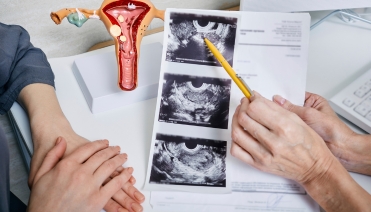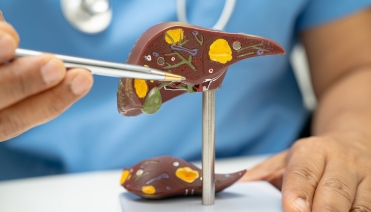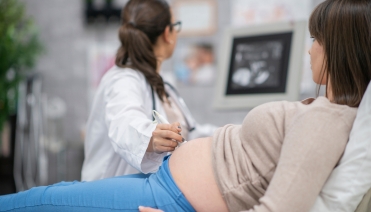Our Expertise at London Gynaecology
We offer a full suite of gynaecological services, our expertise includes early pregnancy, fibroids, abnormal smear, endometriosis and sexual health.
Adenomyosis
Adenomyosis is a common but under-recognised condition characterised by an enlarged uterus due to infiltration of the uterine lining into the muscle wall. During menstruation, this adenomyotic tissue also swells up and bleeds within the uterine wall which can cause severe period pain, cramps and heavy periods.
Coils & Contraception
At London Gynaecology, we offer a full range of contraceptive options, including the hormonal and non-hormonal coil (IUD/IUS), and provide expert, personalised advice to help you make the choice that best suits your lifestyle and future plans.
Colposcopy
At London Gynaecology, our colposcopy service is built around reassurance, expertise, and ease of access. We know that needing a colposcopy can be a worrying experience, which is why we prioritise both clinical excellence, speed of access and patient comfort.
Endometriosis
Endometriosis is a condition where tissue similar to the lining of the uterus (the endometrium) is found outside the uterus. During a menstrual period, this endometriotic tissue also swells and bleeds, but unlike the cells inside the womb, the blood has nowhere to escape. This is why pain during periods is a common symptom of endometriosis.
Fertility Check
London Gynaecology’s fertility health check provides reassurance and guidance.
Fibroids
Uterine fibroids are benign lumps that grow in the uterus. Almost 50% of women will get uterine fibroids by the age of 50. These are benign (non-cancerous) lumps but can lead to symptoms that can affect the quality of your life.
GP Services
Seeing a private GP can offer you more time, flexibility, and faster access. Appointments are typically longer, more in-depth, and can be scheduled at a time that suits you—often the same day. It’s a good option if you want to avoid waiting lists, need more personalised care, or have concerns you’d like to explore in more detail.
Gynaecological Cancers
Gynaecological cancer is a term that refers to cancers that begin in a woman’s reproductive organs. These cancers can affect different parts of the reproductive system, and while they share some similarities, each type has distinct symptoms, risk factors, and treatment pathways.
Heavy Periods (Menorrhagia)
The official term for heavy periods is menorrhagia, meaning an above average or prolonged level of bleeding in a menstrual cycle. Bleeding during an average period is supposed to be around 80ml (less than half a cup), but a lot of women experience more bleeding than this.
HPV
Human Papilloma Virus (HPV) is a very common infection; 75-80% women (and men) get it at some stage in life. It usually produces no symptoms and many women will not even know that they have had the infection. Most women who have HPV will clear it as their immune system will be able to tackle it – this can often take one to two years. If HPV lingers on, it can sometimes lead to abnormal cells developing on the cervix. These abnormalities are picked up on routine smear tests.
Menopause
Menopause is the natural point in life when a woman permanently stops having periods. It is diagnosed after 12 consecutive months without menstruation, usually occurring between ages 45 and 55.
Ovarian Cysts
Ovarian cysts are fluid-filled cysts commonly seen within ovaries. The cysts can vary in size and range from a few millimetres to tens of centimetres. Many ovarian cysts are asymptomatic but some can produce symptoms such as pain.
Paediatric Adolescent Gynaecology
If your daughter has any gynaecological disorders, it is important to seek professional care immediately. Chronic pain, abnormal bleeding, and contraceptive needs also qualify as reasons for seeking advise from a paediatric gynaecologist.
PMS & PMDD
PMDD stands for Premenstrual Dysphoric Disorder and is characterised by severe psychological and physical symptoms that start before a few days to two weeks before the period and improve during periods.
Polycystic Ovary Syndrome (PCOS)
Polycystic ovary syndrome (PCOS) is a common hormonal condition and affects how the ovaries function. It can cause a range of symptoms including irregular periods, excess hair growth, acne, and difficulty with fertility.
Polyps
A polyp is like a skin tag; an overgrowth of cells. An endometrial polyp is where the cell overgrowth is located in the lining (endometrium) of the womb (uterus).
Pregnancy
Early pregnancy is the first trimester, which starts on the first day of your last period and lasts until the end of week 12. During early pregnancy your baby grows faster than during any other trimester. If you want to work out how far along you are and when your expected due date, use our Due Date Calculator. This calculator depends on your periods being a regular 28 day cycle. If your cycles are longer, shorter or irregular your doctor will need to confirm your days after a dating scan.
Recurrent Thrush
Thrush is a common yeast infection that affects most women at some point in their life. Whilst most cases can be treated quickly.
Sexual health
Sexual health is an essential part of overall well-being. It involves not just the absence of disease but the ability to have safe, respectful, and satisfying sexual experiences, along with access to information, care, and support.
Weight Loss Nutrition
Whether you’re looking to lose weight for health reasons, to boost confidence, or to manage hormonal changes, our women-focused weight loss package offers expert guidance from…




















